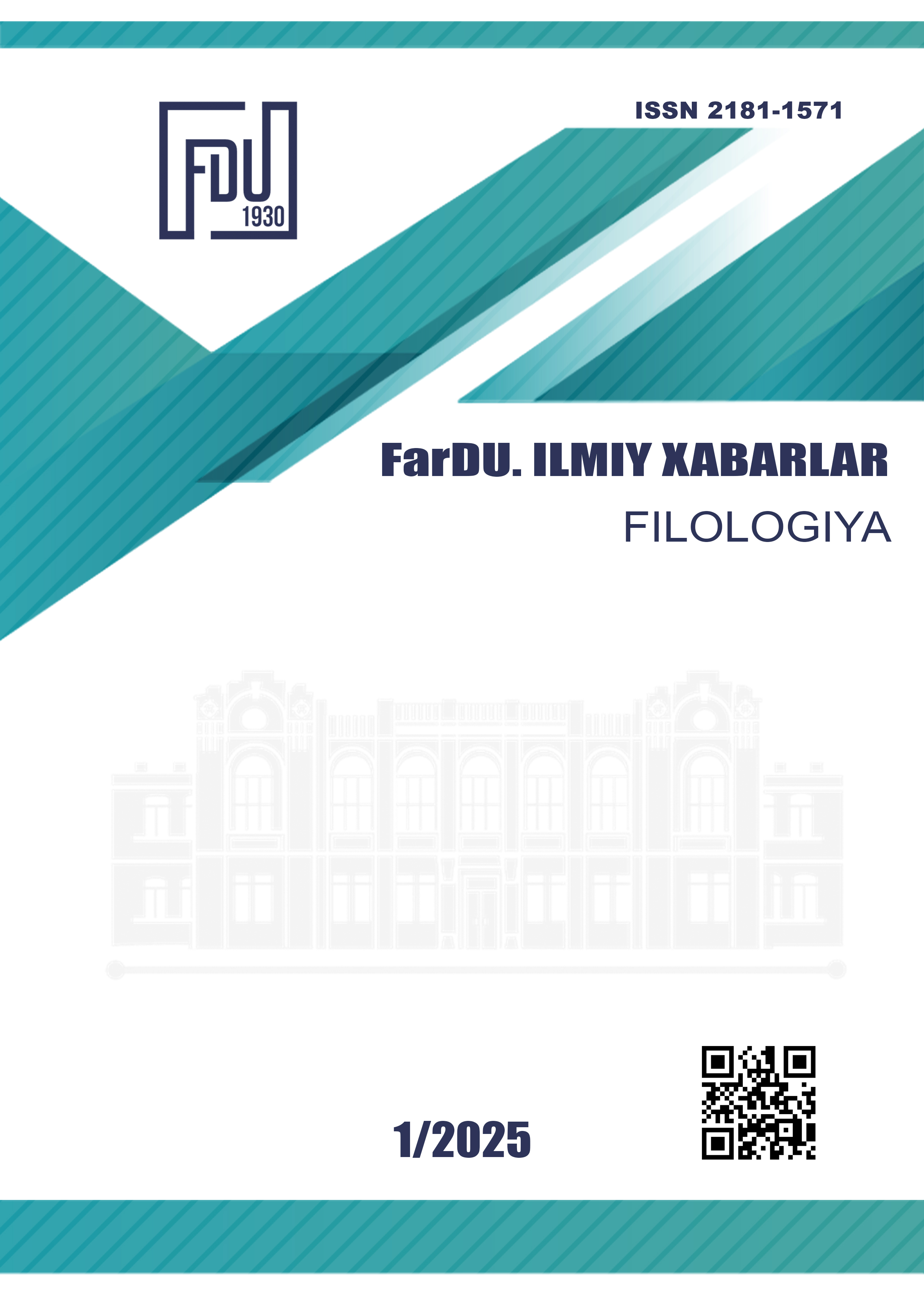THE EXPRESSION OF THE PSYCHOLOGICAL CATEGORY OF NEGATION IN THE SAMPLES OF NATIONAL NOVELISTIC TRADITION
Keywords:
Keywords: Negation, category, modernist, linguistic, inversion, morphological, cognitive, dichotomy, psychological, lexical.Abstract
This article examines the role of the category of negation in speech, particularly through excerpts from Abdulla Qodiriy’s historical-social novel “O‘tkan Kunlar” (Days Gone By), which portrays the socio-political events of 19th-century Central Asian states, and from “Kecha va Kunduz” (Night and Day), a novel reflecting the cultural, political, and socio-political events during the decline and dissolution of the Kokand Khanate under Russian rule in the early 20th century. The article explores how negation reflects the internal state of the characters, their thoughts, and emotions, focusing on the way each character addresses themselves in their inner speech. This internal dialogue highlights a key function of language—expressing thought—and reveals that inner speech should be studied not only within linguistics but also as a category of psychology. Additionally, the article discusses the main forms in which negation can be presented within linguistics.
References
Ахманова О, Беленкая В. Инглиз тилидаги феъл замонларининг морфологияси, Аспеcт ва Тахис - М, 1975-йил.
Басариа И.А. Замонавий инглиз нутқида инкорнинг предикатив шакллари коллигатсия ва коллокатсиянинг бирлиги сифатида. Дисс филол фанлари номзоди -М, 1990-йил, 192- бет.
Герхелиа Г.К. Замонавий инглиз фразеологияси -М, 1989, 184-бет
Комова Т. А. Тил ва нутқда модал феълларнинг қўлланилиши - М, 1990, 140-бет
Комова Т.А. Инглиз тилидаги феълларнинг грамматик морфологик категориялари тизимида инкор категориясининг ифодаланиши– М, 1985-йил, 91-бет.
Комова Т.А. Ҳозирги инглиз тилидаги инкор феълининг шакллари ва вазифалари. Дисс канд. психол.наук -М, 1977-йил
Кухаренко В.А. Интерпретация текста: Учеб.пособие. - 2-е изд., перераб. – М.: Просвещение, 1988. – 149 с.
Downloads
Published
Issue
Section
License
Copyright (c) 2024 Scientific journal of the Fergana State University

This work is licensed under a Creative Commons Attribution-NonCommercial-NoDerivatives 4.0 International License.
How to Cite
Most read articles by the same author(s)
- , , , , , SYNTHESIS OF ACETYLENE ALCOHOLS COMPLEX ESTERS , Scientific journal of the Fergana State University: No. 2 (2024): FarDU.Ilmiy xabarlar jurnali (Aniq va tabiiy fanlar)
- , , , , , OPTIMIZATION OF DIVINYL ETHERS FROM SOME ACETYLENE DIOLS IN A CATALYTIC SYSTEM OF Ti(OTf)4/Cakt , Scientific journal of the Fergana State University: No. 3 (2025): FarDU ilmiy xabarlari jurnali (Tabiiy fanlar)

